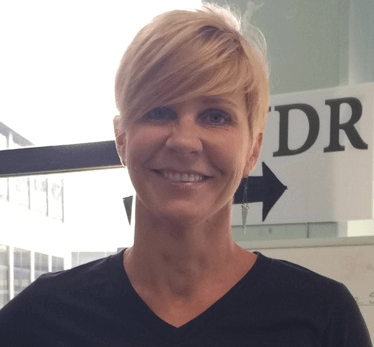Student Success is Community Success
 Both of my parents were always very active in the community. By example, they instilled in us the importance of engaging in, and being an active part of, the community; of living where you work, and working where you live. They stressed the importance of being part of something bigger than your own life. But I’d always been too busy. An academic job carries with it never-ending to-do lists, as we all know. In addition, my other full-time job as Mom made it difficult to add on many extras. I spent time volunteering at my kids’ schools, but that isn’t really community work, that’s parenting. As I approached (and passed) middle age, I became more and more aware that I was not living up to one of the core values by which I’d been raised. And I decided to do something to fix that. And on the way, I decided to bring my students along with me.
Both of my parents were always very active in the community. By example, they instilled in us the importance of engaging in, and being an active part of, the community; of living where you work, and working where you live. They stressed the importance of being part of something bigger than your own life. But I’d always been too busy. An academic job carries with it never-ending to-do lists, as we all know. In addition, my other full-time job as Mom made it difficult to add on many extras. I spent time volunteering at my kids’ schools, but that isn’t really community work, that’s parenting. As I approached (and passed) middle age, I became more and more aware that I was not living up to one of the core values by which I’d been raised. And I decided to do something to fix that. And on the way, I decided to bring my students along with me.
It started in the classroom. In the Fall semester, I teach an undergraduate course called Controversial Issues in Nutrition (NFS6850). The first change I made was to bring in guest lecturers. These guests were people working in the health, food and nutrition spaces in the community. The goal was to expose students to various career paths that might be available to them, as they graduated with degrees in Nutrition and Food Science. Three examples of successful integrations of students in the community resulting from these guest lectures include: Gleaners Community Food Bank, and students participating in teaching Cooking Matters classes; FoodCorps Michigan, and students applying for one year of AmeriCorps service; and, on a more ad-hoc basis, the Detroit Health Department, and nutrition education projects for our Good Food Ambassadors. In this way, “inside the classroom experience” became an opportunity for development of students outside the classroom.
Most satisfying to me, was the realization that these exposures and experiences broadened students’ thoughts about nutrition, expanding beyond the science of the biochemistry and physiology of nutrition. Students who were getting involved began to develop an appreciation that nutrition is ultimately about FOOD, and that food is an essential tool for creating a sovereign, healthy, and connected community. It had become obvious to me that food was a concept that had been essentially absent from our curriculum, and I took to heart the importance of imparting this message to all of our graduating students. To achieve this goal, I initiated service-learning as a required component of NFS6850. In order to graduate, all of our students now serve in some aspect of the food system in Detroit. To date, that amounts to over 800 hours of community service by our students. Importantly, I aim to empower students with necessary skills so that working in the community moves beyond volunteerism, and becomes an essential service that meets the needs of the community.
I have also created opportunities for students to participate in internships. The two student-focused projects I’m working on currently that I’d like colleagues to know about are the Fueling Station and The W internships. Information on these and past internships can be found at https://s.wayne.edu/cress/
Finally, how do I stay focused? I find that it is frequently a lack of focus that fuels my curiosities and creativity. And over the years I have, to some extent, honed the skill of focusing when necessary and expanding ideas when necessary. And then, hopefully, finding a way to execute the good ideas. Sometimes it’s a hit, sometimes a miss. And perhaps being OK with that is a big part of how this works.
- Written by Diane Cress